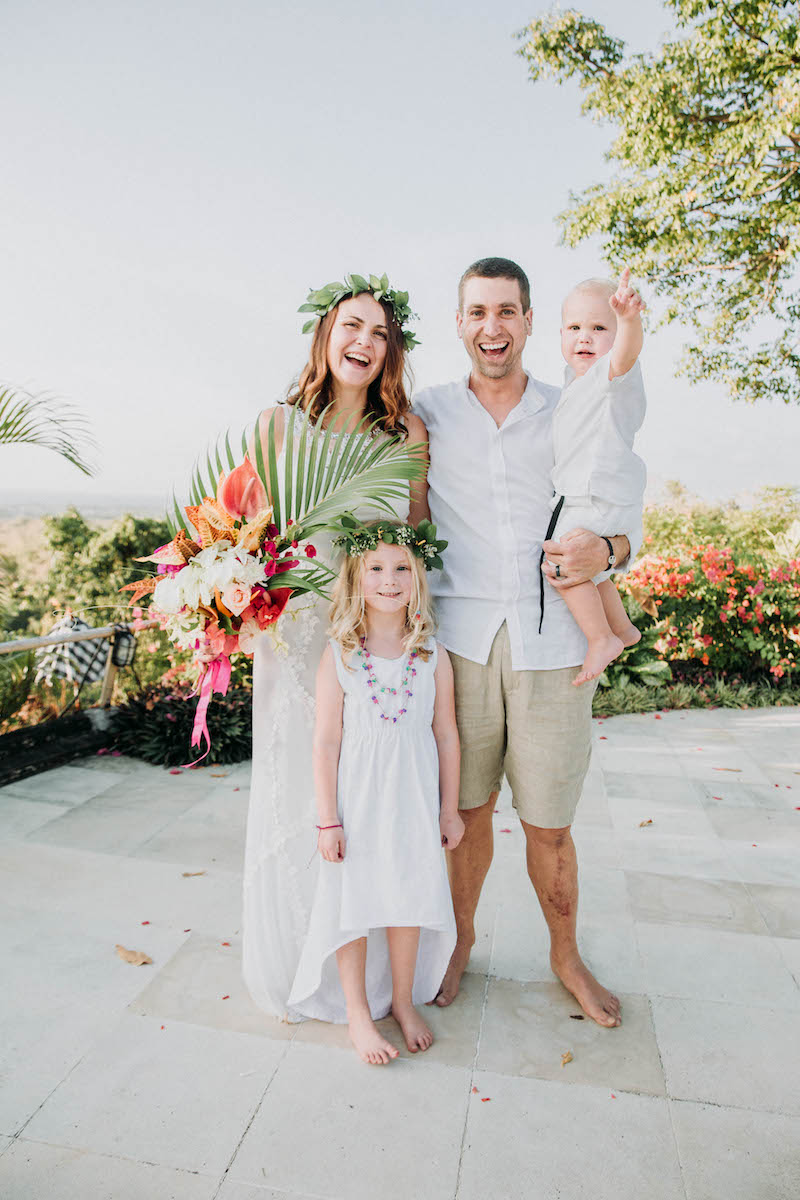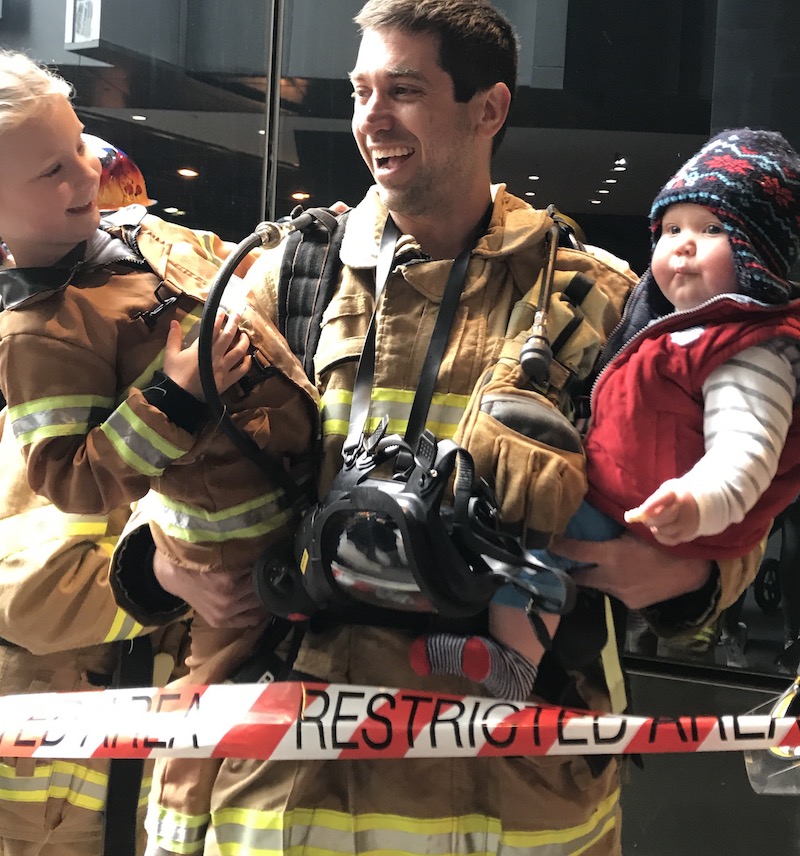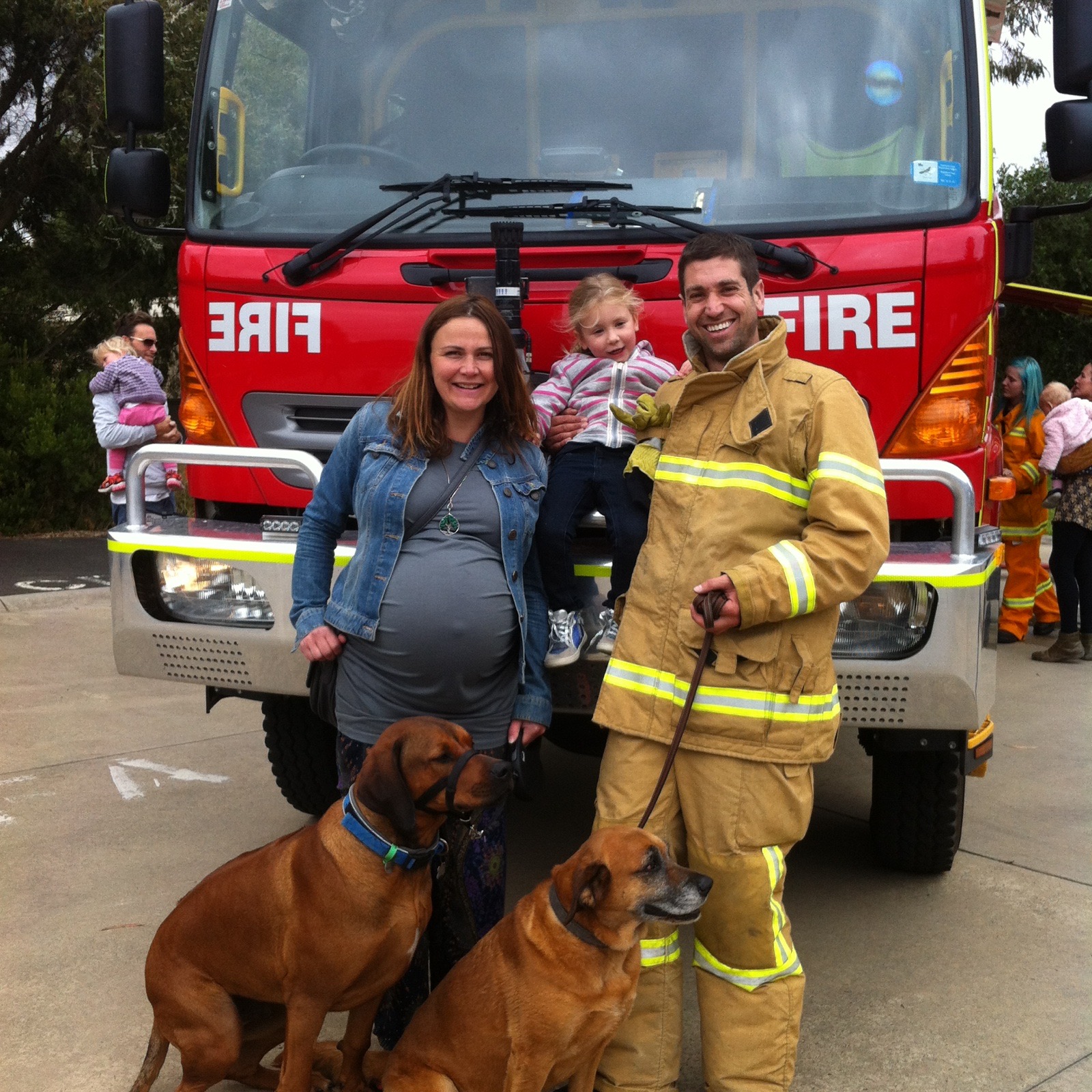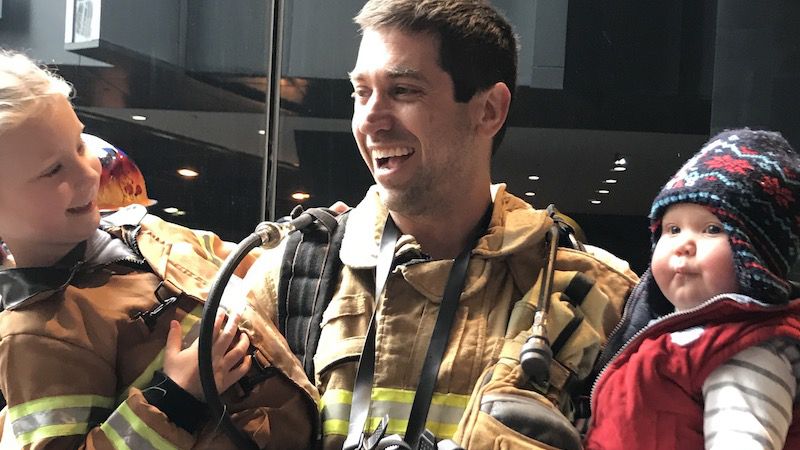My husband is an auxiliary firefighter for the Queensland Fire and Emergency Services (QFES). Before that, we lived in Victoria, where he was a volunteer in the Country Fire Authority (CFA).
Fire danger has always been a topic of conversation around our family dinner table. However, it hasn’t always been like that for me. I am a British expat and before meeting my husband, I lived in Sydney, very much away from rural fire services and having a threat of bushfire impacting my home. It took a bit of getting used to after I met him, as he has lived regionally for over a decade and always been passionate about helping his community in this way.
While I am immensely proud of him, his role can have an impact on our family and especially on me—never knowing when his pager will go off, which very often is at 2 am. Our little boy, Xander, who is now three, miraculously developed an ability to sleep through the sharp alert wail as a baby—I think because he heard it so much in utero!
When my husband has to go, he has to go. That means whatever plans I may have had go out the window as I’m left to deal with all the usual parenting stuff solo: Dinners, bedtimes and tantrums . . . he’ll even have to suddenly vanish from dinner parties we are hosting. Of course I sometimes wish I had “Daddy” there to help.
With his job, I also have to deal with the unknown of where he is and what he is exactly doing out there.
Is it a bushfire, a drug house set alight, a car accident where he is delicately pulling badly injured people from the wreckage?
Then of course, it doesn’t end when he gets home. He is usually overtired and withdrawn for the next few days, as he recovers from sleepless nights or works hard to catch up on the time he missed in his own business—all of which usually means less time with us.

While many of these seem trivial in the grand scheme of things, they do have an effect on me and our family life. I have learned five key lessons around building my own personal resilience to manage this, so he can continue to give to such a vital service.
1. Plan ahead so you are prepared when a crisis hits
When we lived in the Yarra Valley in Victoria, my husband wouldn’t let me stay home on severe fire danger days. It was for my own safety, since there was only one road in and out through deep bush. I found the idea strange that I had to stay with my in-laws as soon as the fire danger ticked over to severe, but it was actually vital for him to do his work well—he knew that I, the kids and the dogs were not in any danger and he could focus on being present in the emergency he was faced with.
We also have to know ahead of time what we need to do around shared parenting and business responsibilities. Having clear, shared diaries really helps with this, as I can see all the commitments he has planned. So if he is suddenly called away, I can take care of those commitments for him. This means he’s not on the phone while on the fire truck, cancelling the kids’ swimming lessons!
2. Lean on your community

We are so lucky to have an incredible community here on the Sunshine Coast. The day the Peregian Fires took hold (in late October), I was actually on a planned overnight business trip in Sydney. When my phone started going crazy in my final meeting of the day, I knew something was amiss.
My husband was in the heart of the firestorm and the clock was ticking until daycare closed! I was over 1000 kilometres away and getting back required several hours of travel. Thankfully, one of the other mums in our community kindly offered to have our little boy over for a sleepover.
I finally got to her place at 2am the next morning after catching a last minute flight back to Brisbane and the shuttle bus home. I was so grateful to her, but she would just respond by saying it was the least they could do to enable another firefighter to be out there helping the community.
As any parent knows, it can be tough when you are flying solo while your other half is away, especially if unexpectedly. Having people you can lean on and ask for help is a key part to looking after yourself in a high pressure situation.
3. Don’t get too caught up in the distress (especially if you are not really involved)
This one I have learnt the hard way. It is tempting to get hooked on news reports, needing to know every little detail about a fire situation when your loved one is in amongst it.
But I realised my obsessive radio listening and Twitter feed-watching was actually activating my stress response in a negative way. My nervous system would get blown up, putting me in a freeze response, making it impossible for me to do anything else: Cook dinner, get the kids to bed on time, unwind myself from the day or even focus on my own business (ironically in resilience training).
Yes, you absolutely need enough information to stay safe and make the right decisions, but constantly having the radio on as it loops through emergency warnings is not healthy for you or your family. Our minds can be so easily tricked into thinking we are in danger when the fact is we are actually quite safe if we are hearing and seeing the right cues. So be mindful of how involved you really need to be in the emergency.
4. Communicate regularly to make sure you know the facts
My husband is really great at keeping me in the loop when he can, which is helpful as you can never be too sure if what you are seeing in the media is true.
One example was when I heard reports of a service station blowing up right next to where he was patrolling on Peregian Beach. I called him and he told me he was literally standing right next to it at that moment and it looked fine to him.
Facetime has been great for us too so that my little boy can see where his dad is and that he is doing something really important for all the people who live there.
Knowing what is really going on stops the troublesome stories brewing in your mind too.
5. Keep up your sleep, nutrition and exercise
As part of my work I do with clients on resilience, maintaining our health actually has a huge impact on how well we respond to crisis or pressure. If our bodies are out of whack (especially with tiredness or too much alcohol or caffeine), we can often overreact or have a bad reaction. It may seem like the last thing you want to do, but cooking a healthy meal, unwinding with chamomile tea, a herbal sleep supplement and a hot shower, and getting to bed at a decent time gives you a much better chance of being able to calmly deal with things the next day.
Always ready

I am so proud of my husband and everything he sacrifices to give to his community at the drop of a hat, and we wouldn’t have it any other way. Our community is massively important to us as a family and we have found being a part of the fire brigade has been a great way for us to forge connections in a new town much more quickly.
My three-year-old is also incredibly proud of his daddy and has created a game called “Fire call outs” for all the kids at daycare! I hope we don’t have too many emergency situations, but I know we will be ready as a family if we do.
How helpful was this article?
Click on a star to rate it!
0 / 5. 0
Be the first to rate this post!
Nicola Swankie
Related posts
Subscribe
Receive personalised articles from experts and wellness inspiration weekly!


